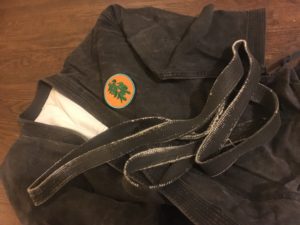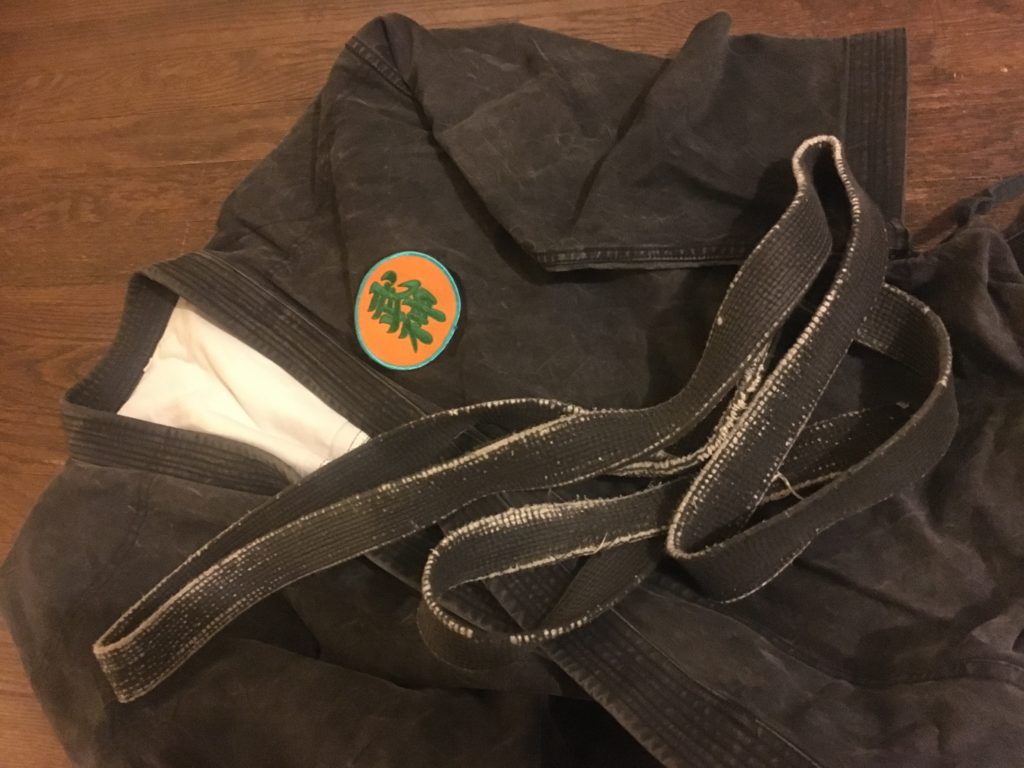I think a lot of students and teachers place too much blind faith in martial art instructor credentials.
John is a cop, therefore he is a qualified shooting instructor. Jake was in the military so he knows everything about combat. Jack lives in Japan and is a Shihan with 25 years of training so he knows the true secrets of taijutsu.
To me, credentials are simply a starting point to take a moment to listen. It’s just a little bit of credibility. It doesn’t necessarily mean what that person says is the best. As students, we have to keep our critical thinking cap on. It’s okay to be skeptical.

My Art is 1000 Years Old and has 50,000 Moves!
A common problem in martial arts is the belief that the art itself will save the student.
The Bujinkan martial arts have been handed down for hundreds of years. Many were battle tested and proven during Japan’s Warring State period; c. 1467 – c. 1603. This is part of the Bujinkan’s credentials. But that doesn’t mean YOU are battle tested.
It’s well known in martial art circles that you have to pressure test what you learn. Pressure testing your skills helps determine the validity of the move, your individual ability to apply the move under stress, and develops competence and confidence in the move.
It’s never the art that makes an artist great. It’s always the artist that makes the art great. There are poor rock musicians and there are amazing rock musicians.
Respect the Man, Challenge the Material.
A good instructor should be able to give you their reasons why they are doing something a certain way based on logic, data, and evidence. Not because instructor James said so. His credentials are not proof in of themselves.
Rather than marveling at a martial art instructor’s résumé, look directly at what they can actually do! More importantly, what can they help others do?
Gary Vaynerchuk made Ds and Fs during his school years. A loser on paper. Yet was making $2000-3000 a weekend selling baseball cards. Since then he has built two multi-million dollar businesses and written 4 best selling books on entrepreneurship.
Advice To Those Seeking Instruction
When you are seeking out an instructor (in any field of study) you have to remember that just because they can do something well, doesn’t necessarily mean they can teach it well. Doing and teaching are two separate skillsets.
An indicator of a good instructor is to see how well his students perform. If they all suck, the instructor probably can’t teach. If they are pretty good, chances are that the instructor is both skillful at the activity itself. And good at transferring his knowledge and skills to others.
Look for an instructor that is always evolving. Trying new things. He’ll make mistakes along they way. And he’ll admit it. No one is perfect.
A good question to ask a martial art instructor is, “In terms of training or teaching, what have you changed your mind about in the last year?”
If we’re training to survive real violence, then we must seek the truth. Even if that means questioning the most respected instructors and challenging longstanding material.
I think the best instructors challenge their own material.
What are your thoughts? Leave a comment.

I really enjoy reading your article because it is so creative and different from what I usually see. The way you mention in this one the myth of martial art instructor credentials is especially interesting!